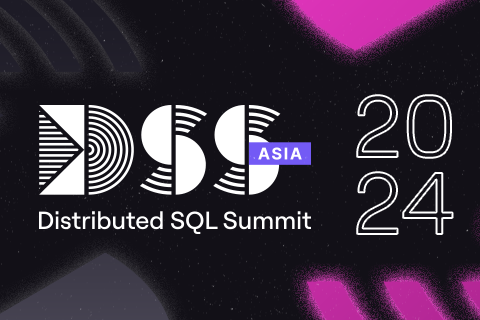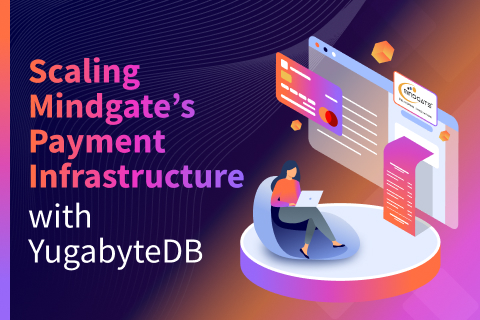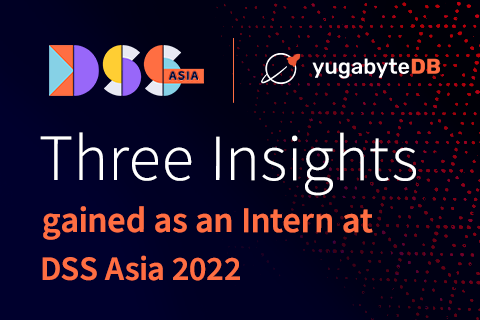Inspiring Database Modernization with Distributed SQL and YugabyteDB
We recently hosted the 3rd Annual Distributed SQL Summit Asia (DSS Asia), our biggest event in the region to date. There was something for everyone this year, including:
- A thought-provoking keynote from Yugabyte CTO Karthik Ranganathan titled, ‘Embrace, Extend, Evolve – Making PostgreSQL Work for a Cloud Native World.’
- Hours of compelling content across 18 presentations from industry-leaders including Mindgate, Tokopedia, Airwallex, Novopay, Red Hat, Tagbangers, and Yugabyte.
- Three tailored talk tracks (Technology, Customers and Partners, and Japan).
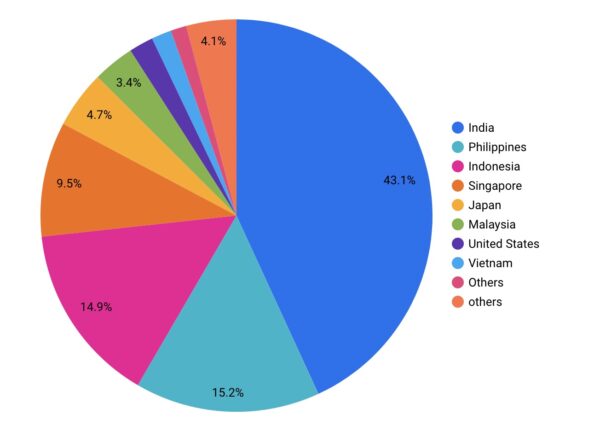
The event drew executives and technical professionals from India, Philippines, Indonesia, Singapore, Japan, Malaysia, Vietnam, as well as the United States (in spite of the time difference!) An overwhelming 97% of the attendees rated DSS Asia “excellent” or “very good.”
Approximately 98% rated the quality of presentations —featuring use cases, best practices, and real world examples of building cloud-native applications and driving database modernization with distributed SQL also as “excellent” or “very good.”
The Interest in Distributed SQL Spans Many Job Titles and Industries
Our live poll revealed that nearly 40% of the attendees were developers while 17.9% are database architects. DBAs and tech leaders accounted for 17.4% of the audience and 7.8% were business leaders. Almost 35% of the attendees’ organizations associated themselves with technology and the internet. This was followed by financial services (18.6%) and manufacturing (14.4%). There was also significant industry participation from retail / eCommerce (8.5%) as well as government and education (7.2%).
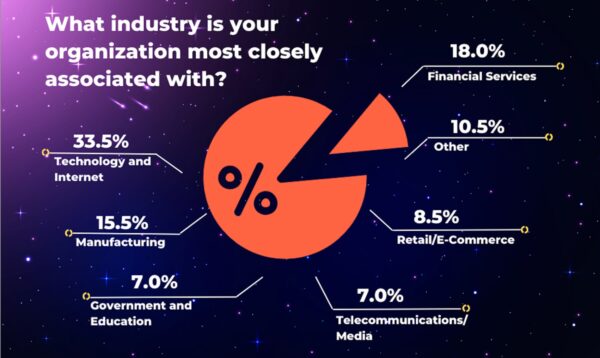
Which is More Valuable? In-Person or Virtual Events?
The poll, asking attendees their preference for future iterations of DSS Asia, indicated that people are not quite ready for a full return to in-person events in the region. Almost 39% of attendees prefer virtual events, while a little more than one-fourth (27%) miss traveling and want to return to in-person events. One-third (33.6%) prefer an hybrid approach with both virtual and in-person options.
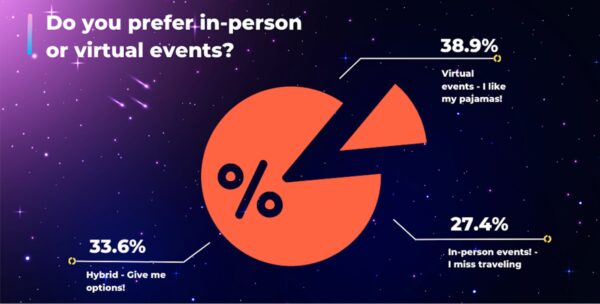
Companies Biggest Database Challenges in 2023
In the live poll, 41.4% of DSS attendees consider complex data replication for high availability as their biggest database challenge today. Other issues included hitting scaling limits (16.7%), overcoming data limitations (16.1%), and the manual sharding of data. (14.0%).
The Key Points of the Keynote on PostgreSQL
Karthik’s keynote, titled ‘E3 – Embrace, Extend and Evolve’, used Google Bard AI to help guide the audience through Yugabyte’s journey to embrace, extend, and finally evolve PostgreSQL. The presentation started with a simple question, “What is the fastest growing database in the world by usage?” Bard confirmed that the PostgreSQL open-source, object-relational database management system (ORDBMS) is fast becoming the de facto database API and the standard on which applications are being built.
There are many large companies and cloud providers adopting it, backing it and making it better, and developers love it. It’s been identified as the DBMS of the Year for multiple years and is now offered as a managed service on all major public clouds.
—Karthik Ranganathan, CTO and Co-Founder, Yugabyte
In the keynote, Karthik presented YugabyteDB as a pioneering distributed SQL database that supports the development of cloud-native, transactional applications. YugabyteDB “embraced” PostgreSQL by ensuring runtime-compatibility. The Yugabyte database seamlessly integrates with PostgreSQL. To the application (as well as developers and DBAs) it behaves and appears just like it. Karthik also highlighted how gaps in PostgreSQL functionality were filled by “extending” its capabilities, and how YugabyteDB has “evolved” beyond the core capabilities to improve developer productivity, availability, geo-distribution, and app simplicity.
DSS Asia Presentation Highlights
Mindgate Solutions – Ease of Migration From Legacy RDBMS to YugabyteDB
A pivotal presentation at DSS Asia was given by Indian digital payment solutions company Mindgate Solutions, which moved its real-time payments system from a relational DBMS to distributed SQL database, YugabyteDB.
The rapid growth of Unified Payments Interface (UPI) real-time payments in India has made it difficult to deliver horizontal scale and enable active-active setup for critical applications”
—Nikhil Mahawar, Vice President for Product Engineering and Innovation, Mindgate Solutions.
Yugabyte simplified adoption and migration by supporting the tools available in the PostgreSQL ecosystem to convert the schema and data for any database to PostgreSQL. Anything that could be moved to PostgreSQL can be moved to YugabyteDB with the same level of effort. The recently released free, open-source YugabyteDB Voyager product makes migrations to YugabyteDB simple and repeatable with a structured migration process that handles the entire lifecycle from assessment to cutover.
The topic of migration resonated with many in the audience, who were concerned with the ease of migration of schema and data from Oracle to YugabyteDB. In response to another question on how YugabyteDB stands out from the competition, it was pointed out that depending on the use cases and the database in question, a traditional RDBMS does not offer the resiliency, scalability and flexibility that YugabyteDB does.
READ EXCERPT OF FULL PRESENTATION
Tokopedia—Scalability, Availability and Simplicity
Felix Christian Jonathan, the Technical Architect of Indonesia’s largest e-commerce platform, Tokopedia, shared the best practices and lessons learned after the company “successfully” migrated from a monolithic PostgreSQL database to a scalable distributed database with YugabyteDB, without impacting user experience or uptime.
“The distributed database can facilitate Tokopedia’s massive weights with unlimited scalability, zero downtime and fault tolerance,” he said. Christian added that Tokopedia selected Yugabyte because it could provide fault tolerance to their systems by storing data in multiple nodes with defined replication factors if configured correctly.
Traditional databases have limitations in scaling as they store all the data in a single node. We need a feature technology like distributed SQL that can enable us to go with a highly scalable system.”
—Felix Christian Jonathan, Technical Architect, Tokopedia
YugabyteDB Expert Sessions
Sessions presented by YugabyteDB experts were well-attended and provoked thoughtful discussion. Highlights included:
- Srinivasa Vasu, Principal Solutions Engineer at Yugabyte, demonstrating a cloud-native stack with distributed SQL and explaining how YugabyteDB can assist developers in creating distributed apps quickly from scratch using a scaffolding accelerator.
- Franck Pachot, Developer Advocate of YugabyteDB, who debunked the idea that using the PostgreSQL code for YugabyteDB’s query layer constrains the optimization of distributed SQL processing. Frank highlighted a unique YugabyteDB feature, known as Loose Index Scan or Index Skip Scan, that offers substantial performance boosts. He also showed YugabyteDB’s numerous optimization enhancements beyond PostgreSQL.
- Balachandar Seetharaman, Principal Solutions Engineer at Yugabyte, who showed how YugabyteDB’s distributed Change Data Capture (CDC) feature has benefitted many companies’ data integration strategies. YugabyteDB’s CDC Connector easily integrates with popular data lakes (e.g. Azure Synapse Analytics) and common sinks (e.g. Elasticsearch and MySQL).
WATCH YUGABYTEDB EXPERT SESSIONS
All said, now is the time to unshackle your organization from the limitations of traditional SQL databases. Modernize your database to meet the demands of cloud-native applications without worrying about database consistency or downtime. YugabyteDB APIs and automation are two of the cornerstones of cloud-native deployments.
DSS Asia 2023 shared a wealth of knowledge on distributed SQL and YugabyteDB. Database administrators, architects, and technology leaders signed off with broader understanding of how to accelerate their journey toward database modernization.
